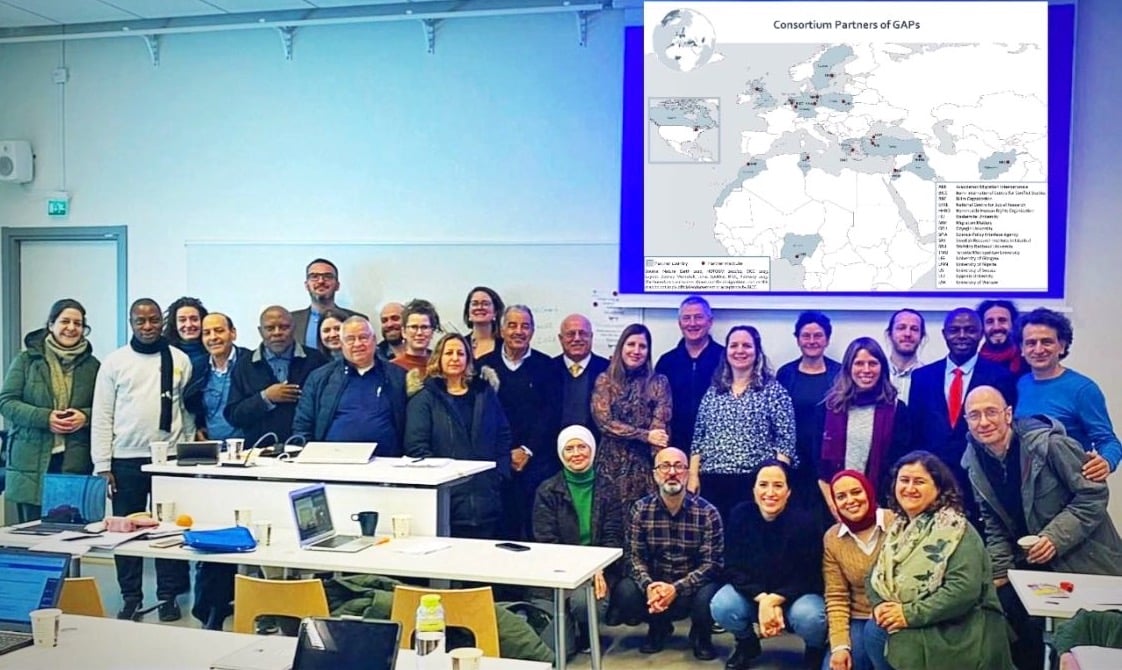The European Union’s return migration policies have been subject to extensive debate, with concerns about human rights costs and potential impacts on South-South return dynamics in the EU’s ‘neighborhood’. We are excited to announce that Migration Matters is part of an ambitious new Horizon Europe research project with 17 partners across 4 continents that aims to better understand the complexities of return migration and examine the disconnects between policy expectations and their actual outcomes.
‘Decentring the study of migrant returns and readmission policies in Europe and beyond’ (or GAPs for short), is a comprehensive multidisciplinary study on the drivers of return policies as well as the barriers and enablers in international cooperation concerning returns. The European Commission funded project runs from 2023-2026 and aims to de-center the dominant, one-sided understanding of “return policymaking”. The project has three primary objectives:
- To scrutinize the shortcomings of the EU’s governance of returns,
- To analyze enablers and barriers of international cooperation, and
- To shed light on the perspectives of migrants themselves to understand their knowledge of return policies, aspirations and experiences.
GAPs combines its de-centering approach with three innovative concepts:
- A focus on return migration infrastructures that enable the project to analyze governance fissures
- An analysis of return migration diplomacy to understand how relations among EU and members states and with third countries hinder or facilitate cooperation on returns, and
- A trajectory approach that uses a socio-spatial and temporal lens to understand migrant agency.
By taking a close look at governance, cooperation and actor’s agency, GAPs aims to contribute to the improvement of return policies and practices and the situation of migrants by providing tools and information and to explore alternative pathways about returns, both at the national and European level. Field work is expected to be conducted in five European countries (Sweden, Germany, Netherlands, Greece, Poland) and 8 non-European countries (Nigeria, Morocco, Afghanistan, Georgia, Turkey, Tunisia, Jordan, and Iraq).
The project will develop wide-ranging and innovative tools, including the creation of an interactive data repository on returns, a return cooperation index, return governance indicators, policy briefs and workshops, the formation of stakeholder expert panels, a digital storytelling and video series, the launching of a Massive Open Online Course (MOOC) as well as open access publications.
Migration Matters will be contributing to the consortium as a communications and dissemination partner, leading informative video production and supporting on digital storytelling trainings and communications.
The consortium members:
- Uppsala University (Sweden)
- Bonn International Centre for Conflict Studies (BICC) (Germany)
- Stichting Radboud Universiteit (Netherlands)
- Ozyegin Universitesi (Turkey)
- Hammurabi Human Rights Organization (Iraq)
- Swedish Research Institute, Istanbul (Sweden/Turkey)
- Hashemite University (Jordan)
- National Centre for Social Research – EKKE (Greece)
- Association Migration Internationale (Morocco)
- Toronto Metropolitan University (Canada)
- University of Nigeria (Nigeria)
- Bilim Organization for Research and Social Studies (Afghanistan)
- University of Warsaw (Poland)
- Migration Matters (Germany)
- University of Sousse (Tunisia)
- Science-Policy Interface Agency (SPIA) (Germany)
- University of Glasgow (UK)
